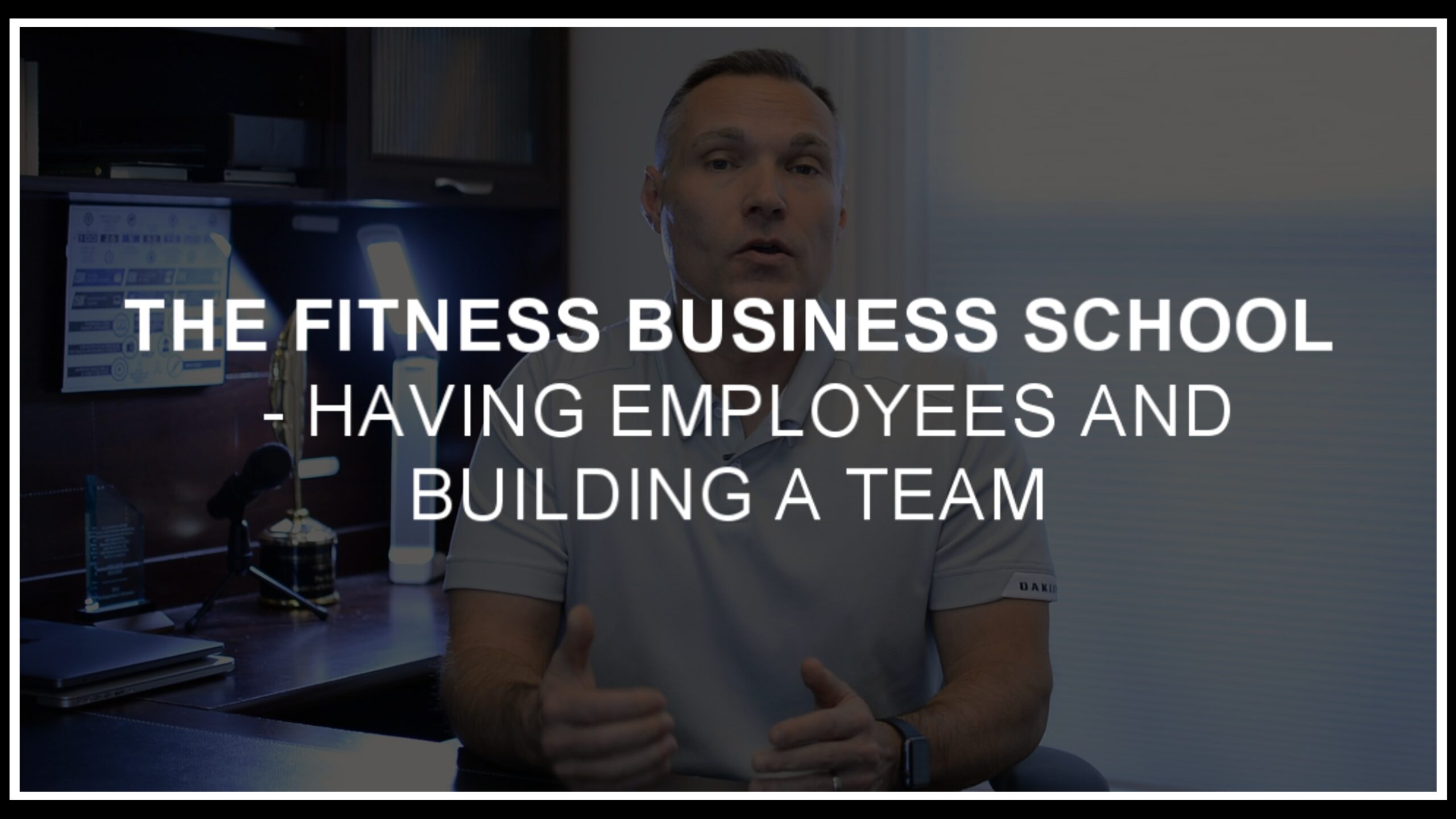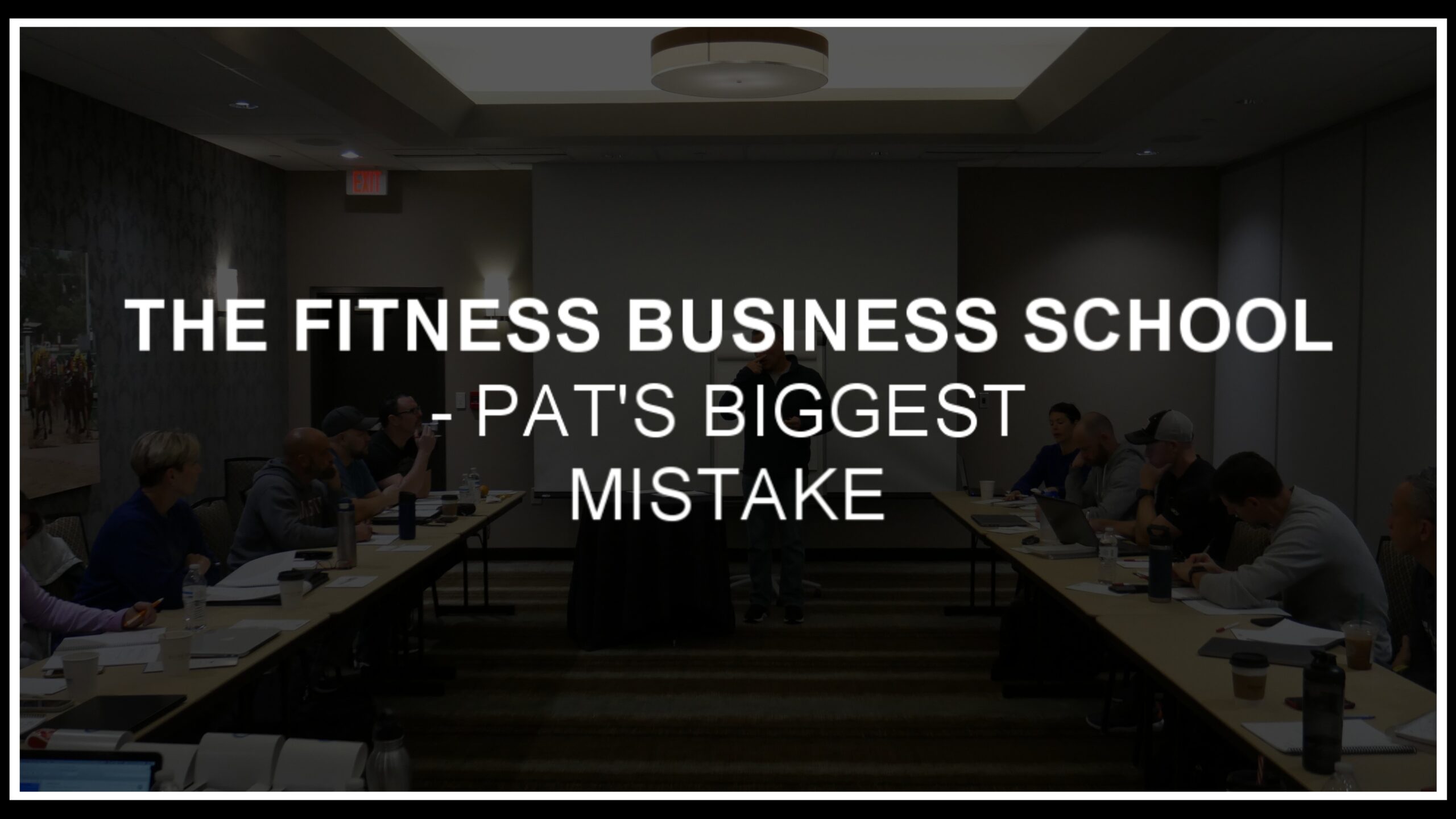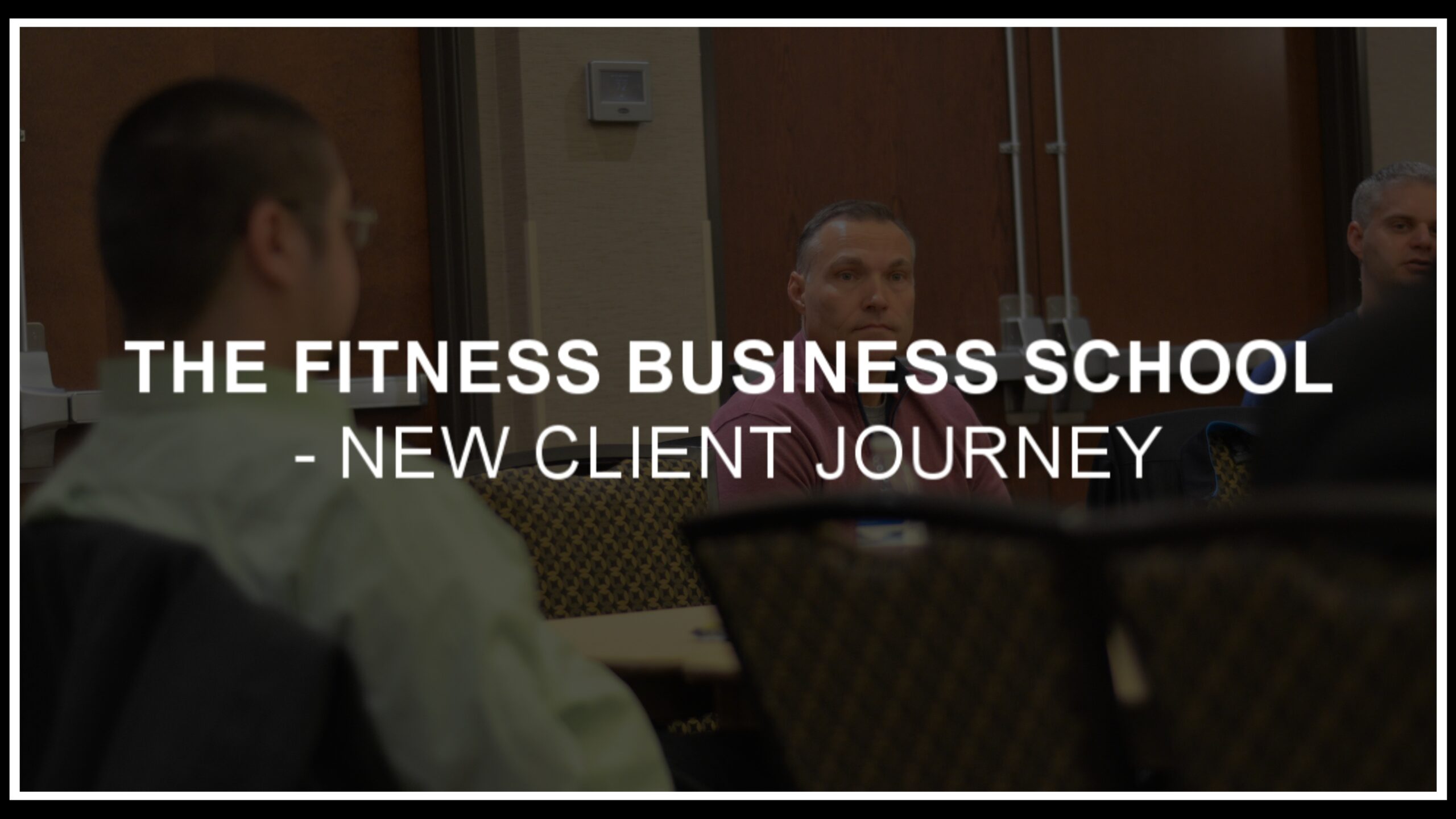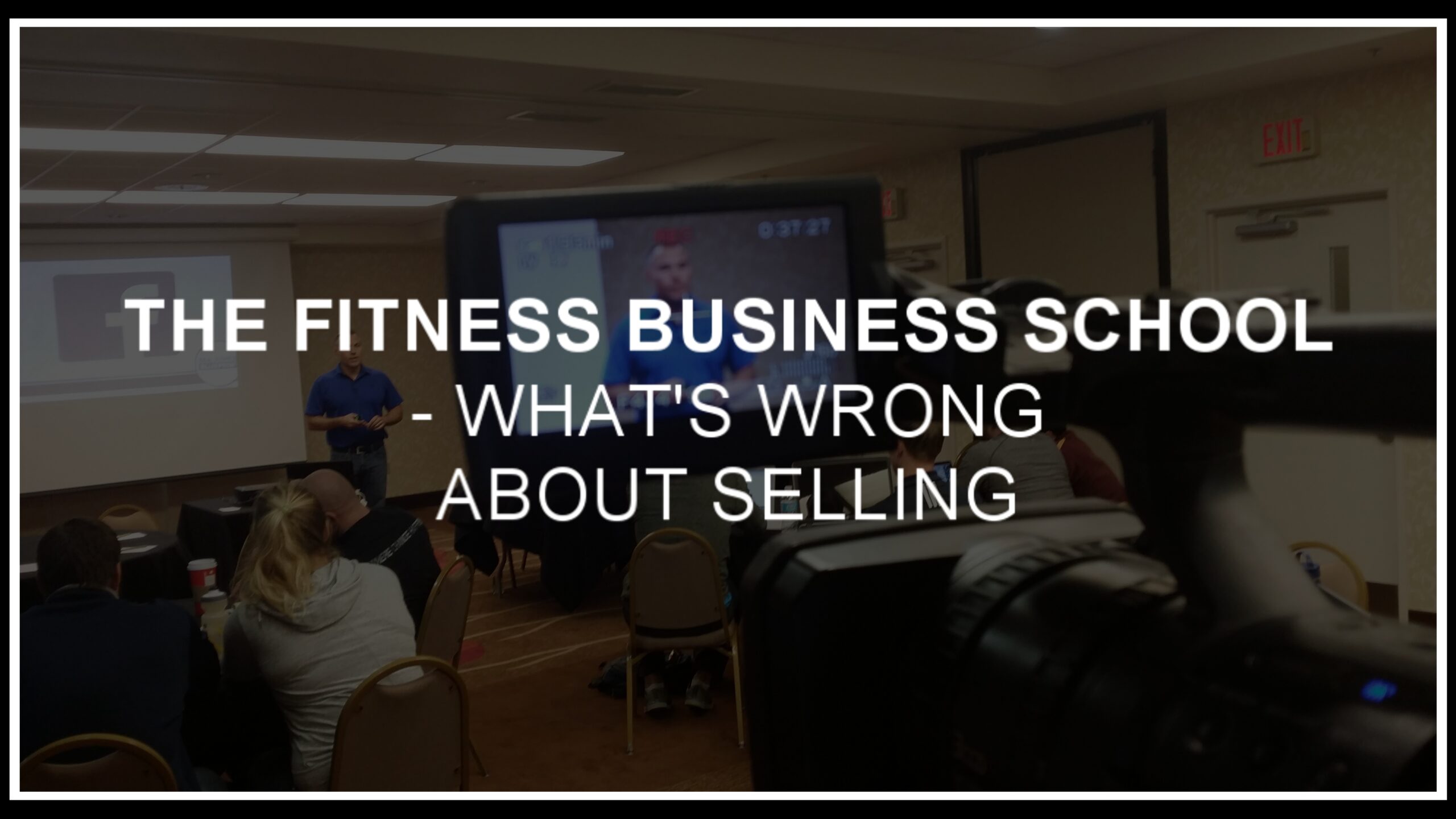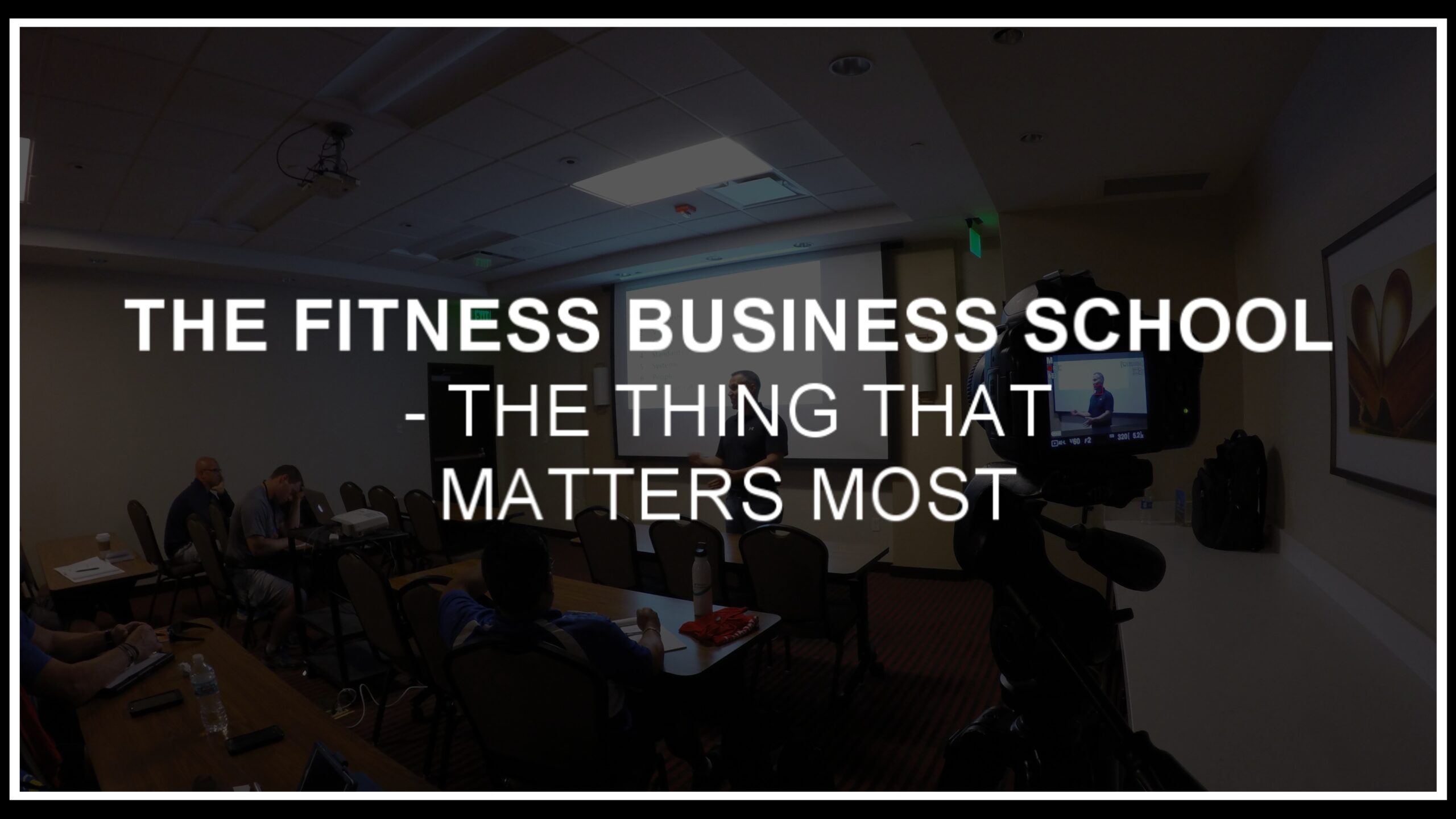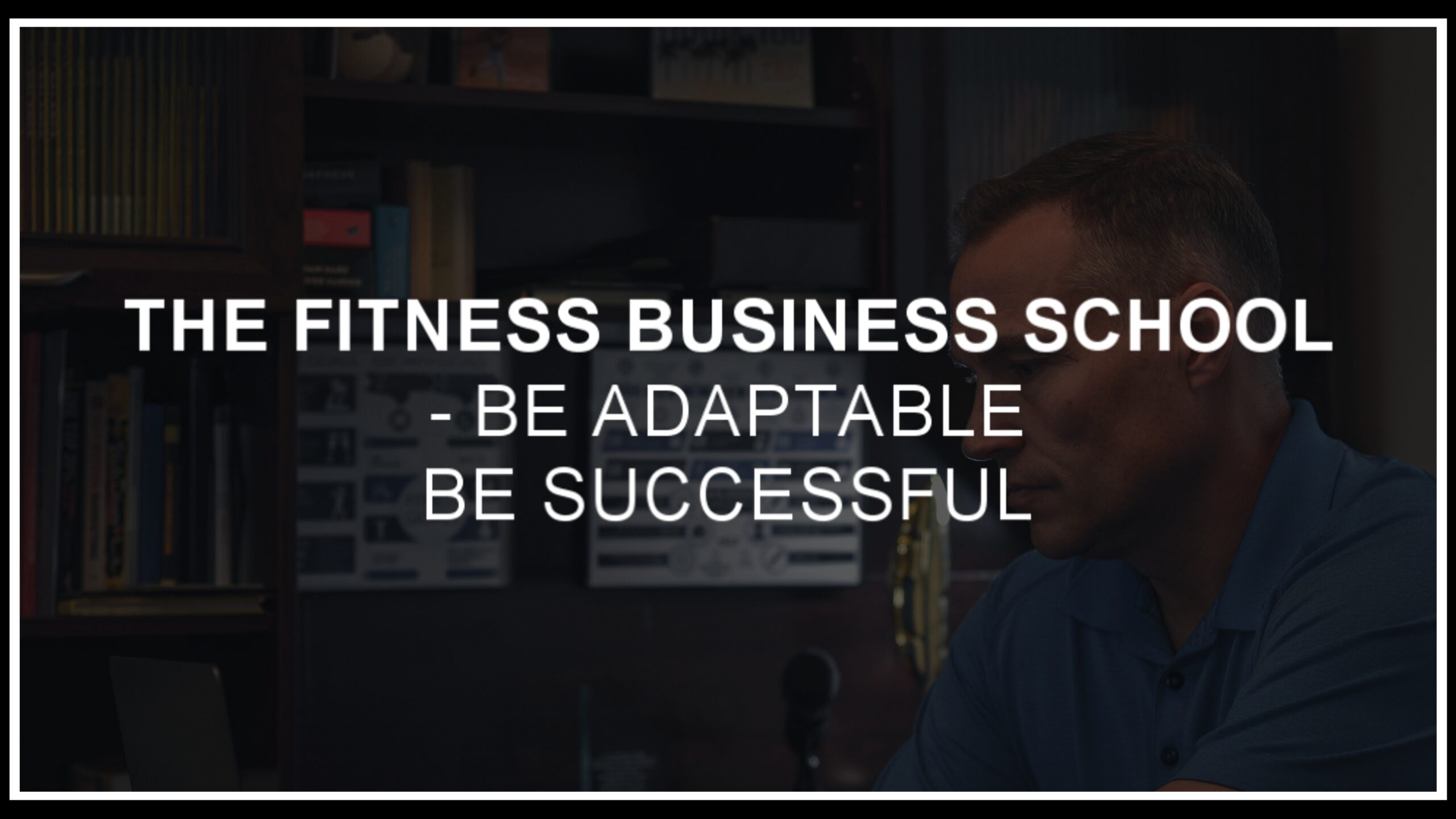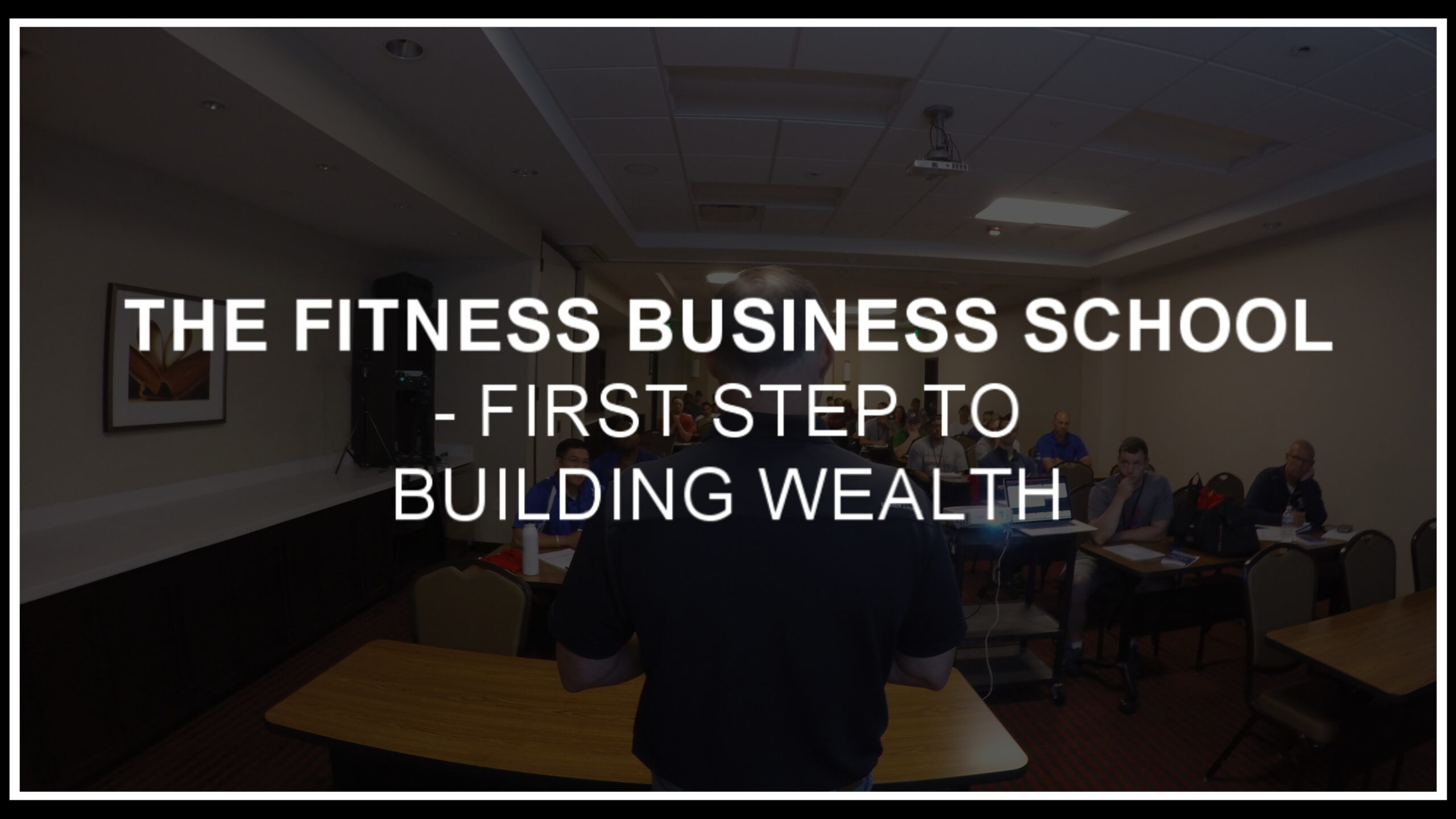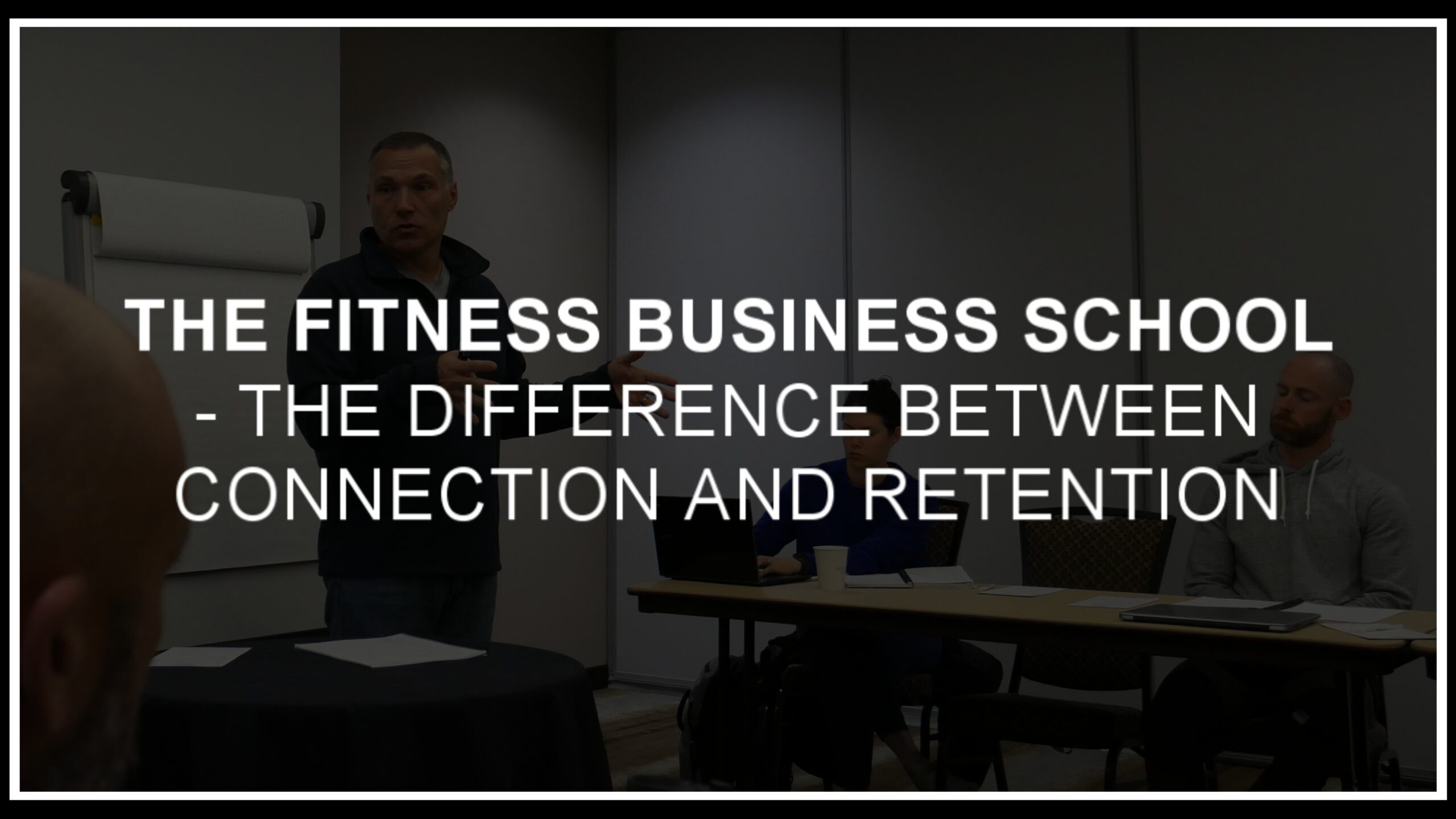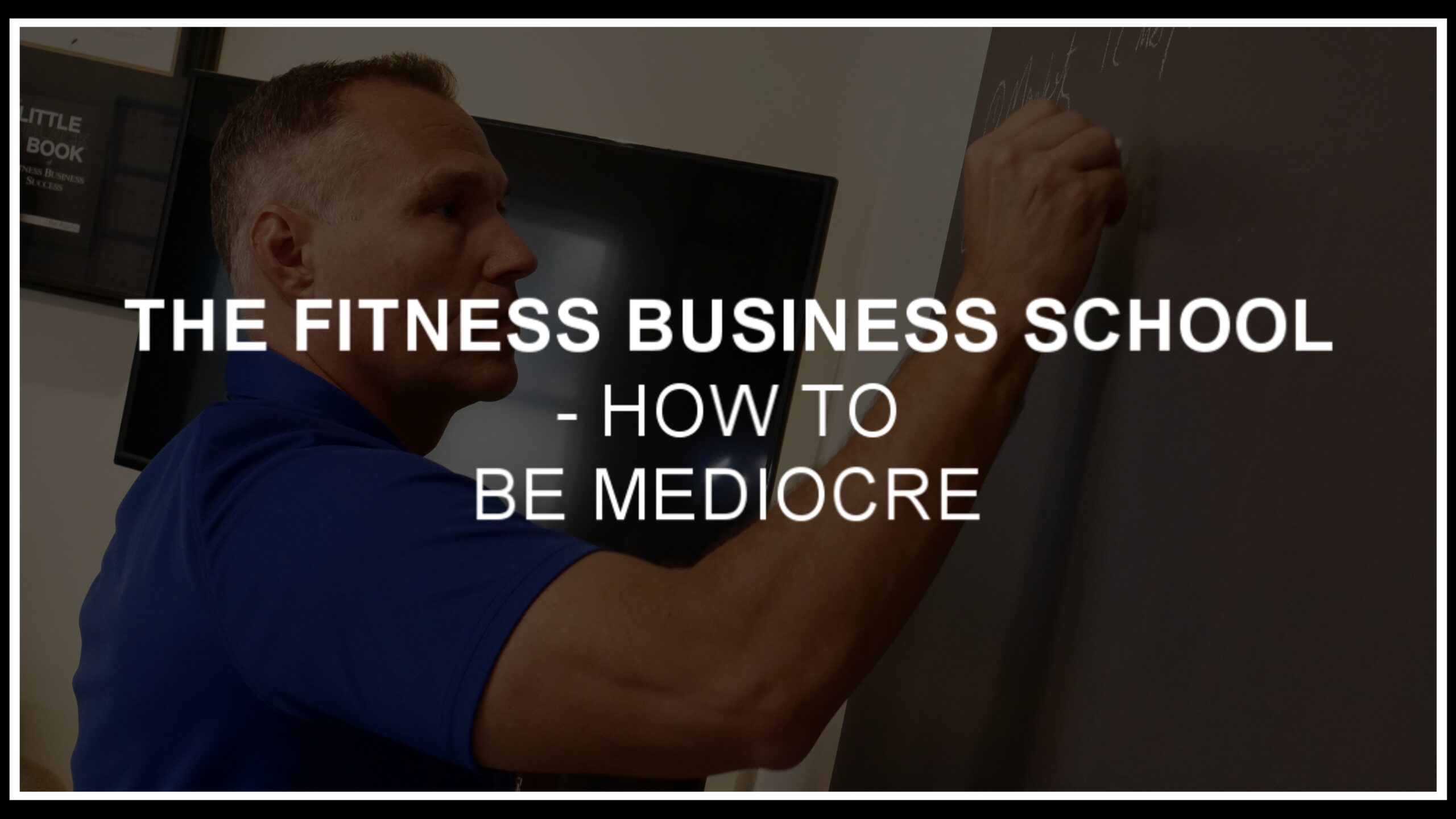Show Notes
- Building a strong team has always been important to Pat
- It’s okay if people graduate and move on
- If you have motivated staff, they’ll have goals beyond your walls
- Have good relationships with your employees – stronger than a typical job
- Expectations and roles must be clearly defined
- Bringing on a team member is like bringing on a client
- Your responsibility is leading by example and developing the team
P.S. – 6-Weeks of Coaching…Free.
Get a surge of new clients and revenue over the next 6 Weeks with ZERO FEE and no obligation to continue?
If you’re a current business owner who wants to add 50K or more in annual revenue over the next 12 month, you can Test Drive our coaching program for 6 Weeks with no fee or even an obligation to continue as a way to demonstrate how we can help you grow your business.
No strings attached. No obligation. You get our best coaching & tools…and hopefully, you’ll love it enough that you want to keep working together.
Would you be interested in discussing?
If so, email me here with ‘interested’ in subject line and we’ll set up a chat.
Full Transcript
Hey, Pat Rigsby here and in today’s episode, I wanna share some thoughts on employees. Let’s get to it.
Welcome to the Fitness Business School podcast, the show for fitness business owners who want to grow their income, increase their impact and improve their lifestyle. Be sure to listen to the end of this episode because we have a brand new special offer exclusive for listeners. So stay tuned.
So at our recent boardroom mastermind meeting, the topics that come up, that a lot of times or people at that stage of business, it’s hiring, staff development, that sort of stuff. So I wanted to share a few, I wouldn’t say random thoughts, but like loosely connected thoughts on building a team. And,
I’ve had the good fortune to be in a leadership position with team members college baseball players, assistant coaches, all the way to having bigger
organizations with a decent sized staff.
And in many cases, the culture has been very good. I think that’s been one of the things that that has mattered most to me. I still have great relationships with so many of the people that I coached over 20, even, gosh, over 25 years ago in baseball. We won awards for best places to work and franchisee satisfaction stuff with some of my previous companies. So I think there’s at least some evidence that this idea of building a strong team has been a priority to me for a long time. And it’s something I certainly studied for a long time. So I’m gonna share some thoughts. Feel free to use what, what’s useful, discard what’s not. The first
thing I would tell you is in our type of business, a small business, whether it’s my coaching business, coaching business owners, or your business coaching fitness clients, athletes, whatever else, it, it’s okay if people graduate, it’s totally fine.
I even would tell you this about clients, it’s fine if people graduate. Our goal is to be in a situation where it’s a win-win as long as it can be a win-win. But in a small business, there’s probably a pretty conservative ceiling as to how much upward mobility somebody can have. Like what type of opportunities somebody has. They can’t necessarily go and just keep climbing the ladder from, it’s not like a big law firm where somebody goes from like a junior
associate to an associate to a junior partner to a partner or whatever else, they’re just not that many rungs in the ladder, and there may not be enough revenue coming in to get them to the point where it meets all of their financial goals. Or maybe they’re ambitious and they want to start their own business.
And all those things are fine. And I think we have to be at peace with that, that if you do a good job with people and create an environment where somebody graduates and they’re leaving on good terms and you do it the right way, then filling that spot with the next person becomes easier
because then there’s this path that somebody can look at and say, yeah, I want the same kind of experience and outcome that they had. So I think that’s important. So that, that’s the first thing that I wanted to share. The second is the, the relationship you have with, with team members. And it’s, it’s
interesting, right? Because I think that terms like friends and family get thrown around a lot, but I also think that people, kind of use those phrases or those words in, in different ways.
So some people will tell you, well, employees aren’t friends and they’re not family because of the type of relationship you have. And other people will tell you that they are, and you wanna treat them like that. But I mean, having been on this planet for 51 years, I will tell you that not everybody has the same family experience, and not everybody defines friends the same way either. So I would tell you that from my perspective, it is, I want to build relationships with the people on my team, that it is, ideally a stronger or a higher level relationship than they would get working most places. Whether you wanna qualify that as friends or family members or whatever else. I mean, that’s probably more for you to decide. For me those words are not things that have clear definitions in the way that we actually use them anyway.
But I know that for me, the type of relationship I want to have with people is one that goes beyond the transaction of the work that they do for the money that they’re compensated or compensated with, I guess. There needs to be clear expectations. They need to have standards of performance. They need to know what being great at their job looks like, and they need to know that if they’re not meeting this criteria, then they probably aren’t gonna stay in this job
for an extended period of time. But I would probably argue from my perspective that that probably holds true with most relationships. I would say that if somebody doesn’t act like a friend, they’re not gonna be a friend for very long. And there are people that were our friends when we were in elementary school that may not remain our friends today.
So when people say, well, you’re not this or you’re not that, I think the key in my mind is defining what you want this relationship to look like and what are the expectations of this relationship? Because I think with all healthy relationships, there are expectations, there are standards and it’s up to us in this case as the employer, we define those rather than as a family member or as a friend, maybe those things are arrived at a mutual way. So that’s the
next piece of this. The third thing that I’ll touch on is not everybody you don’t have to to lead or manage the same way. Some people are very structured managers that have to have very precise minute by minute team meetings. Other people are managers kind of by walking around.
I’ve seen plenty of coaches who are not necessarily relationship builders, and I’ve seen plenty of people who have almost a parental role in players’ lives. And I mean, there’s no one way to do it. What you have to arrive at is what’s your way? What’s the best way? And so you shouldn’t
necessarily start at like a blank canvas. You should look at the way other people do it and take the things that fit you and discard the things that don’t. I mean, I think back to my time as a college baseball coach very early on, a gentleman who was a mentor to me very early, and I was the youngest head coach in the country my first couple years. And so I tried to model this mentor’s approach and do a lot of what he did.
And it was clearly the wrong fit. It didn’t fit my personality, it didn’t bring me any enjoyment trying to operate in a way. I mean, it felt like I was being a bad actor. I was trying to imitate somebody and I was doing a bad job of it. And it didn’t create the culture environment I wanted to have. And it
worked for him. It was his personality. But for me, I needed to kind of find my own path. And that’s okay. Like you figure out the way that you wanna manage. I’m definitely more of a managed by walking around type of person. Even though I don’t have a whole lot of people that work with me that live in any
sort of geographic proximity to actually walk around and, and do managing since everything’s virtual. But there are a lot of phone calls, there are a lot of conversations, there’s a lot of interest in the personal side of people.
I think that stuff’s really, really key. And I’ve been through for people who are familiar with things like EOS and that sort of stuff, I’ve been through all that. I’ve worked in a bureaucratic, like a university environment, and there are elements of that that I like to adopt and use. But then there are plenty of elements of that I’m like it’s just not a fit for me. And so you gotta find the right kind of approach for you. And then the last thing I’ll say about team members is that I think of bringing on a team member in many ways is like bringing on a client. I know that’s not common practice because a lot of times we think, well, I’m paying this person, so it’s their responsibility to carry the, carry the torch, right?
Like, it’s their job to do everything ’cause I’m paying them. But my logic, and again, not everybody’s gonna buy into this. My logic is that I wouldn’t be hiring them if there wasn’t something in it for me if there wasn’t a benefit for me in this. So just thinking that throwing money at this solves that and is
gonna make sure I arrive at the benefit that I want is probably a pipe dream. So I think of like, okay, what do I want this person to what role do I want them to play? What does being great at this role look like? I see that almost like if you were having a client and you were taking them through an assessment you’re going to figure out what their goals are. So here, because this is my business, I am, am going to probably be shaping more of those goals, but there has to be a bit of a
match.
If they’re not interested in being there, if they’re not in interested in arriving at that place, it’s probably gonna be a short time relationship. And then, I need to assess where they are today because not every person starts at the same place. It’s just like an assessment with a client. Some people may
start, like, we may say, yeah, I’ve gotta train them on everything, but some people, certain things are gonna click instantly. Other people, it’s gonna take longer, right? Everybody’s unique in that regard, and I think that we need to meet them where they are and facilitate them getting to where we want them to
be. Because otherwise this isn’t gonna have the outcome that we want. And if you want to employ people, if you wanna be a leader, if you want to have people who are kind of pulling the rope in the same direction, the the onus is on you as the owner, the leader, the boss, whatever you wanna call it, to make sure that there’s an environment that, that allows this to happen and actually facilitates this happening.
Your responsibility is to make sure that you’re modeling the behavior that you want them to have. You have to guide the development of these people. You can’t just say, Hey, I’m burned out. I need to pay somebody to come in and do this thing. I mean, it just doesn’t work anywhere. It didn’t work
in coaching. You can’t just recruit people and say, Hey, I’ll see you at the game. Like, you actually have to develop players to play within your system to be a part of your team if you want to have the outcomes that you want. So when we’re talking about this idea of building a team and hiring employees, there are some thoughts again, like just as I mentioned with my mentor, not necessarily being a good fit, his approach being a good fit for me.
You don’t have to take any of what I said is yours, but I would encourage you to at least use it and say,
Hey, maybe this inspires me to choose my own approach rather than just blindly adopting somebody
else’s.
Thanks for listening to this episode of The Fitness Business School.
Before you go, I’ve got a quick announcement. When I first connect with fitness business owners, they almost always ask me how I can get more clients and make more money. Well, I’ve got an exclusive offer for you and it’s gonna help you do just that.
And as a listener of this show, I would love to invite you to a conversation where you and I can talk about our new program, the Business Growth Sprint.
The Business Growth Sprint is a one-of-a-kind program where you get everything you need.
We actually work with you one-on-one, unlimited, one-on-one coaching and support.
We design a marketing plan for you. We give you assets to execute the plan.
It’s unmatched in our industry between the level of coaching, the frequency of accountability, the simple step-by-step nature and the completeness of how it’s gonna guide you to making more money and improving your personal income fast.
Imagine having every tool, template, ad, and script that you need all ready-to-use. Plus you’re going to get one-on-one access with me and the other coaches on my team to make sure that everything from your business growth plan to your marketing and sales system is done, turnkey, ready to go.
And what’s great is there is zero risk. We guarantee that you are going to add at least $4,000 a month in recurring revenue, or $20,000 a month cash collected as part of this program in just four months.
So if you are interested, if you’d like to discuss and see if this is a fit, just shoot me an email at [email protected] and put Sprint in the subject line and I’ll get you all the details.


